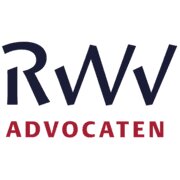Best Conveyancing Lawyers in Leiden
Share your needs with us, get contacted by law firms.
Free. Takes 2 min.
Free Guide to Hiring a Real Estate Lawyer
List of the best lawyers in Leiden, Netherlands
About Conveyancing Law in Leiden, Netherlands
Conveyancing refers to the legal process of transferring ownership of real estate property from one party to another. In Leiden, as in the rest of the Netherlands, the conveyancing process is a meticulous legal procedure designed to protect the interests of both buyers and sellers. Dutch law requires that the sale and transfer of real property are officially documented and registered with the Land Registry (Kadaster). The process is overseen by a civil-law notary, whose role is pivotal in ensuring legal compliance and safeguarding all parties involved.
Why You May Need a Lawyer
Many people seeking to buy, sell, or inherit property in Leiden may need legal advice or representation to navigate the complexities of Dutch conveyancing law. Typical situations where a lawyer can assist include:
- Reviewing and preparing purchase agreements
- Ensuring the property is free of debts or restrictions
- Addressing disputes related to property boundaries or easements
- Managing sales involving inherited or jointly owned properties
- Assisting non-residents or foreigners in complying with Dutch real estate requirements
- Representation during negotiation or mediation of contractual issues
- Advising on fiscal implications of property transactions
Local Laws Overview
Conveyancing in Leiden is governed by Dutch civil law, which imposes several key requirements:
- Property transfer can only be completed with a notarial deed executed by a licensed civil-law notary (notaris).
- The transfer of ownership becomes effective only after registration at the Land Registry (Kadaster).
- Buyers are protected by mandatory legal investigations into the property’s status, including searches for mortgages, liens, and zoning restrictions.
- A three-day cooling-off period is standard for residential property buyers after signing the purchase agreement.
- All contracts and legal documents must comply with strict formalities, often requiring Dutch language and certified translations if parties are not Dutch-speaking.
- The notary is neutral and represents the interests of all parties, but parties may still choose to hire their own legal advisors.
Frequently Asked Questions
What is the role of the notary in conveyancing?
The notary is an impartial legal professional responsible for drafting and executing the deed of transfer, checking encumbrances, collecting fees and taxes, and ensuring registration in the Kadaster.
Do I need a lawyer if I already have a notary?
A notary acts as a neutral party, but hiring your own lawyer can provide independent legal advice, particularly in complex or disputed transactions.
How long does the conveyancing process take in Leiden?
The timeline varies, but typically it takes several weeks from signing the purchase agreement to completion, depending on the parties’ readiness and complexity of due diligence.
Are foreigners allowed to buy property in Leiden?
Yes, there are no restrictions for foreigners, but legal guidance is advisable due to potential residency, tax, and compliance issues.
What happens during the cooling-off period?
After signing a residential purchase agreement, buyers have three days to reconsider the purchase without providing a reason and without penalty.
What if there are debts on the property?
The notary will ensure all outstanding mortgages or debts are paid off from the proceeds before transfer to guarantee clear title to the buyer.
Can I buy a property under joint names?
Yes, properties can be jointly owned, and legal advice can clarify joint and several liability, division of shares, and inheritance considerations.
What taxes should I be aware of?
The main taxes are transfer tax (overdrachtsbelasting) usually paid by the buyer, and capital gains tax under specific conditions. Consult a lawyer for personal tax advice.
Can disputes arise after completing the transaction?
Yes, post-completion issues can involve hidden defects, boundary disputes, or contractual breaches. Legal advice early in the process can help prevent such disputes.
Do I need to be present at completion?
Personal presence is preferred but not mandatory. You may grant a power of attorney to a trusted representative or your lawyer.
Additional Resources
For further support and official information about conveyancing in Leiden, consider these resources:
- Land Registry (Kadaster) - maintains official property records and registration procedures
- Royal Dutch Notarial Association (KNB) - provides information on finding and working with notaries
- Netherlands Association of Property Lawyers (Vereniging van Vastgoed Juristen) - connects individuals with conveyancing legal experts
- Municipality of Leiden (Gemeente Leiden) - supplies local zoning, permits, and municipal requirements
- Dutch Consumer Association (Consumentenbond) - offers practical guides on buying and selling homes
Next Steps
If you are considering a property transaction in Leiden, start by gathering all relevant information about the property, your financial arrangements, and your legal objectives. Schedule a consultation with a civil-law notary to understand the standard procedures and legal requirements. If your situation is complex or you want independent advice, contact a lawyer specializing in Dutch property law. Prepare questions and any documents you have for your initial meeting. Remember that acting early and seeking trustworthy legal input will help secure your rights and avoid costly mistakes throughout the conveyancing process.
Lawzana helps you find the best lawyers and law firms in Leiden through a curated and pre-screened list of qualified legal professionals. Our platform offers rankings and detailed profiles of attorneys and law firms, allowing you to compare based on practice areas, including Conveyancing, experience, and client feedback.
Each profile includes a description of the firm's areas of practice, client reviews, team members and partners, year of establishment, spoken languages, office locations, contact information, social media presence, and any published articles or resources. Most firms on our platform speak English and are experienced in both local and international legal matters.
Get a quote from top-rated law firms in Leiden, Netherlands — quickly, securely, and without unnecessary hassle.
Disclaimer:
The information provided on this page is for general informational purposes only and does not constitute legal advice. While we strive to ensure the accuracy and relevance of the content, legal information may change over time, and interpretations of the law can vary. You should always consult with a qualified legal professional for advice specific to your situation.
We disclaim all liability for actions taken or not taken based on the content of this page. If you believe any information is incorrect or outdated, please contact us, and we will review and update it where appropriate.












